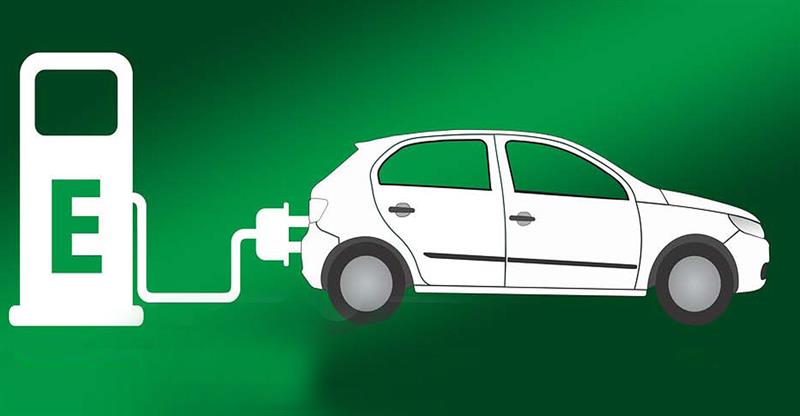THE TRANSITION AWAY FROM FOSSIL FUELS TOWARDS CLEAN ENERGY IS ADVANCING WITH THE HELP OF INTERNATIONAL PARTNERS.
 In keeping with the recent Paris Agreement on Climate Change, the Government of Saint Lucia is transitioning its fleet of vehicles from fossil fuel to electric.
In keeping with the recent Paris Agreement on Climate Change, the Government of Saint Lucia is transitioning its fleet of vehicles from fossil fuel to electric.
In 2015, the United Nations Economic Commission for Latin America and the Caribbean produced a report on transitioning the public sector fleet.
Deputy Permanent Secretary in the Department of Energy, Barrymore Felicien, said that report informed the recent National Energy Transition Strategy, under which a pilot project involving electric vehicles, will be used to assess what portion of the fleet can be converted to cleaner energy.
“The three vehicles we have procured so far will actually be used for testing and monitoring,” Mr. Felicien said. “Testing to see how they perform in Saint Lucia’s terrain and topography, and against that we juxtapose that data to make informed decisions about which vehicles are the best and what technology is best suited for Saint Lucia and the fleet in general. We are hoping that once this is successful, we can take it as a signal to show the private sector that we are indeed serious about success, serious about our transportation system because transportation actually uses the most amount of fossil fuel. It has overtaken electricity production so the government is concerned about this and we are taking steps to remedy this.”
Public Utilities Officer Kurt Inglis noted that electric vehicles are easier to maintain than vehicles with traditional engines.
“The question this pilot seeks to answer is whether electric cars can be efficiently used for regular government duties. For this pilot project we are starting off with three vehicles: two passenger vehicles and one panel van. The reason why we chose to go with two passenger vehicles and one panel van is that we want to get the experience of having different kinds of electric vehicles. Traditionally, the types of vehicles that we find in the government fleet are on the larger side, regardless of the purpose of that vehicle. So we want to do something different. We want to have a vehicle fleet that suits the purpose for what it is being used for,” Mr Inglis said.
Ana Sophia Mifud is the Project Manager for the Electric Mobility Saint Lucia Study from the Rocky Mountain Institute. She said when the study is completed, the next step is for the ministry to advocate for a transformation of the vehicle fleet.
“The government as a whole needs to agree on what it’s trying to accomplish with its vehicle fleet. It needs to set goals so that different ministries align on whether this transformation really is important.”
Chief Energy, Science and Technology Officer in the Department of Infrastructure and Energy, Terrance Gilliard, said the project is important to the socio-economic development of the island.
“The reality is that small island developing states are all very aware of the impacts of climate change, although our emissions are negligible. We speak about Maria and other recent hurricanes and storms and the disastrous effects are obvious right here in Saint Lucia in recent years. But besides that, there is the socio-economic aspect which is very important. We all feel the pinch when we go to the pumps and we notice that the prices are fluctuating. The recent IEA report is telling us that oil prices should increase. These things have a very negative impact on our economy and on our lives.”
The move away from fossil fuel began in 1992 with the establishment of an international environment treaty called the United Nations Framework Convention on Climate Change. The year 1997 saw the first legally binding agreement on climate change called the Kyoto Protocol. In this agreement, developed countries agreed to reduce greenhouse gas emissions between 2008 and 2012.
Since that agreement, global attempts have been made to transition away from fossil fuel. As a small island developing state, Saint Lucia’s carbon footprint is minuscule. However, efforts are being made to ensure that the island becomes as environmentally friendly as possible.
Saint Lucia’s transportation sector accounts for a large part of the island’s carbon footprint.